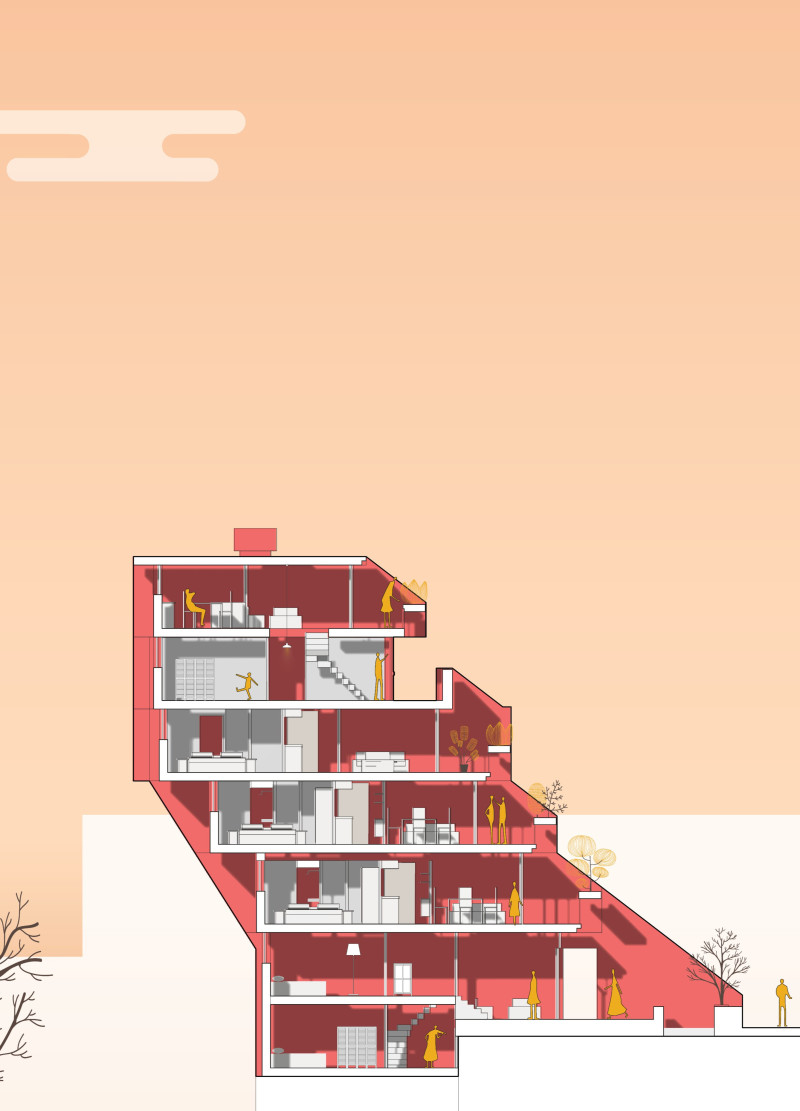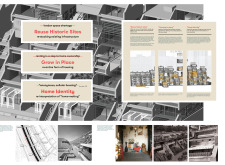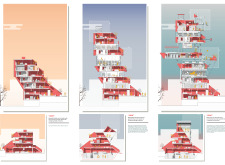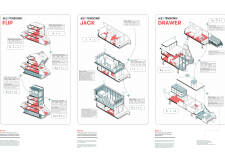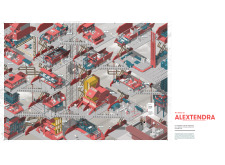5 key facts about this project
The ALEXTENDRA project is a residential architectural design situated in London, aimed at addressing urban housing shortages while fostering community interaction and personal identity among residents. This project emphasizes adaptive reuse of historic structures and promotes modular living arrangements that cater to changing needs over time. The design integrates sustainable practices, reclaiming building materials to create functional, livable spaces that enhance the urban landscape.
Modular Living Units and Community Interaction
The ALEXTENDRA design incorporates modular housing units that allow for flexibility and adaptability, accommodating various family sizes and configurations. This modular approach promotes efficient use of space while giving residents the ability to modify their living environment according to their circumstances. The project also includes communal areas, such as shared kitchens, co-working spaces, and rooftop gardens, encouraging social interaction and fostering a sense of community among residents. These shared facilities are strategically placed to enhance accessibility and usability.
Sustainable Materiality and Historic Integration
A defining feature of the ALEXTENDRA project is its commitment to sustainability through material choices. The design utilizes reclaimed wood and steel framing, not just for their structural properties but also for their lower environmental impact. This focus on sustainable materials helps to minimize the carbon footprint of the construction while also ensuring the durability and longevity of the buildings. Additionally, the integration of historic structures within the project respects the cultural heritage of the area, creating a dialogue between the past and present.
Explore architectural plans and sections from the project presentation to gain further insights into the design's structural and aesthetic details. Understanding these architectural ideas and designs will provide a comprehensive overview of how ALEXTENDRA meets both the practical and emotional needs of urban residents, setting a benchmark for future developments in densely populated areas.


